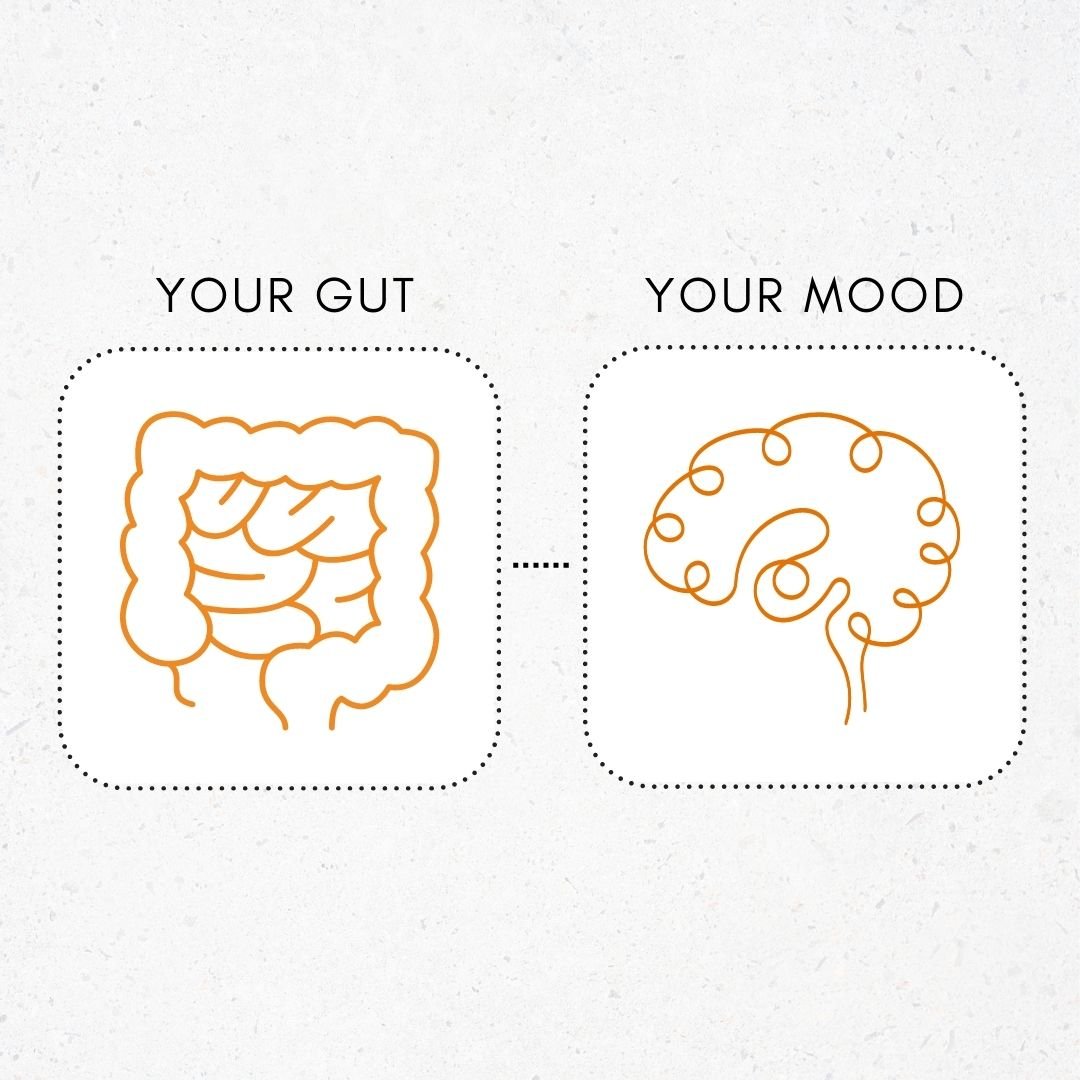
We all know that feeling when our stomach is upset - we can't focus, we're in a bad mood, and everything seems to be going wrong. It's no surprise then that the gut has been called the "second brain". The gut-brain axis is the communication pathway between the gut and the brain, and it plays a major role in maintaining our overall health and well-being. When the gut is healthy, it produces nutrients and hormones that help to protect the brain and keep it healthy. In addition, the gut bacteria produce short-chain fatty acids that support cognitive function and mental health. Conversely, when the gut is unhealthy, it can lead to inflammation and a variety of other health problems. Therefore, it is important to take care of our gut in order to maintain our overall health and well-being.
Since the gut-brain axis is a two-way street. Not only does the brain send signals to the gut, but the gut also sends signals to the brain. In fact, the gut has such a direct connection to the brain that it can actually affect our mood and behavior. For example, studies have shown that people with irritable bowel syndrome (IBS) are more likely to suffer from anxiety and depression.
So what does this all mean for our mental health?
Well, it's simple: a healthy gut equals a happy mind.
There are a few key ways to keep your gut healthy and, in turn, your mind happy:
1. Eat a balanced diet that includes plenty of fiber-rich foods.
Fiber helps to keep things moving along in your digestive system, and it also provides food for the beneficial bacteria in your gut. In addition to eating plenty of fiber, you should also make sure to include fermented foods in your diet, such as yogurt and sauerkraut. Fermented foods contain live probiotics that help to boost gut health.
bacteria in your gut. In addition to eating plenty of fiber, you should also make sure to include fermented foods in your diet, such as yogurt and sauerkraut. Fermented foods contain live probiotics that help to boost gut health.
2. Stay hydrated by drinking lots of water.
When you drink plenty of water, it helps to keep your digestive system moving and prevents constipation. It also dilutes the acids in your stomach, which can reduce heartburn and other digestive discomfort. In addition, water helps to break down food so that your body can absorb more nutrients. Plus, staying hydrated is good for your skin and can help to reduce fatigue. When you're feeling thirsty try to reach for a glass of water instead of sugary or caffeinated drinks.
dilutes the acids in your stomach, which can reduce heartburn and other digestive discomfort. In addition, water helps to break down food so that your body can absorb more nutrients. Plus, staying hydrated is good for your skin and can help to reduce fatigue. When you're feeling thirsty try to reach for a glass of water instead of sugary or caffeinated drinks.
3. Avoid processed and sugary foods.
Processed foods are loaded with sugar, unhealthy fats, and chemicals that can wreak havoc on your gut health. In contrast, unprocessed foods are rich in fiber and other nutrients that promote a healthy gut. Eating processed foods can increase inflammation and lead to mood swings, anxiety, and depression. So if you're looking to improve your mental health, one of the best things you can do is cut out processed foods and eat more nutrient-rich, whole foods.
contrast, unprocessed foods are rich in fiber and other nutrients that promote a healthy gut. Eating processed foods can increase inflammation and lead to mood swings, anxiety, and depression. So if you're looking to improve your mental health, one of the best things you can do is cut out processed foods and eat more nutrient-rich, whole foods.
4. Exercise regularly.
Regular exercise can help to reduce inflammation, which is a common cause of gut disorders. In addition, exercise can help to increase the number of beneficial bacteria in the gut, which can improve digestion and absorption of nutrients. Finally, exercise can help to reduce stress levels, which can also lead to gut problems.
can help to increase the number of beneficial bacteria in the gut, which can improve digestion and absorption of nutrients. Finally, exercise can help to reduce stress levels, which can also lead to gut problems.
5. Get enough sleep.
When we sleep, our body regulates hormones that impact gut function. For example, the hormone Ghrelin signals to the brain that it's time to eat, while Leptin signals that we are full. If we don't get enough sleep, these hormones can become unbalanced, which can lead to problems like overeating. In addition, sleep helps to reduce inflammation in the body, which can also impact gut function.
inflammation in the body, which can also impact gut function.
As we’ve seen, there are many things you can do to keep your gut-brain axis in balance and promote overall happiness and health. Just by making a few small changes to your diet and lifestyle, you may be able to improve your mood, reduce stress levels, and boost your immune system.Have you tried any of these methods to improve your gut health? What worked best for you? Let us know in the comments!

